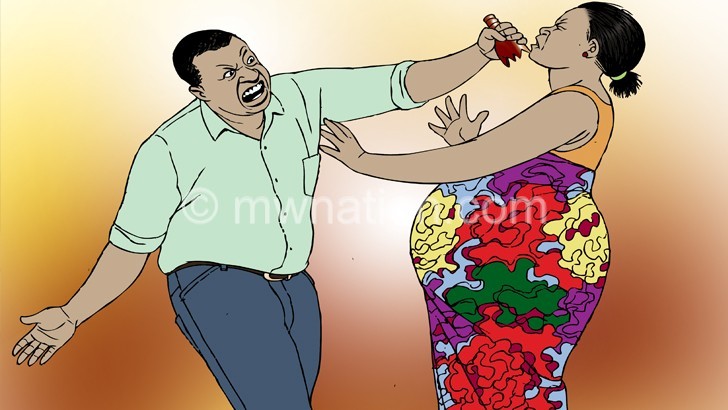Arresting GBV in workplaces
She wakes up at 5am every day to prepare her three children for school. She then starts off for work, some seven kilometres away from her home in Kawale Township, Lilongwe. As she shuffles to the work, her mind is flooded with psychological torture and self-pity.
She knows her boss will make another sexual advance on her. He has been doing that against her consent and will since she got employed at the office two years ago.

Every time she tried to refuse, she has been threatened with dismal. Since she is a single mother, the bread-winner of the family, dismissal would spell doom for her and her children, as the job is the only source of income. Finding another job would not be easy.
Thus, Mannes Phiri (not real name), opts to become the silent victim of sexual violence at her workplace in return for financial support for her children.
Mannes, like many other women in Malawi, has opted to suffer the burden of sexual violence, mainly due to job scarcity in the country.
The Gender Equality Act 2013 defines sexual violence as any form of unwanted verbal or physical conduct of a sexual nature in circumstances in which a reasonable person would have anticipated that the other person would be offended, humiliated and intimidated.
With educational institutions flooding the job market with job-seekers every year, finding a job in Malawi has become a nightmare.
Actually, as some would rightly put it, looking for a job is a job in itself. Yet, behind such desperation for a job lies greater vulnerability to violence for women and girls.
“In such a situation, women easily fall prey to sexual violence,” said Emma Kaliya, chairperson of NGO Gender-Coordinating Network during a recent live radio panel discussion on “Let’s Eliminate Violence at workplaces to achieve decent work”.
NGO-GCN, with financial support from ActionAid Malawi (AAM), organised the event as part of the activities under the campaign on 16 Days of Activism Against Gender-Based Violence: Leave No One Behind, End Violence against women and girls.
Kaliya said most women in workplaces suffer various forms of sexual abuse but fail to report it for fear of losing the job.
“Actually, most male employers take advantage of job scarcity in the country to demand sexual favours from desperate women in return for a job, which is very unfortunate,” she said.
Human rights activist Robert Mkwezalamba, who is also chairperson of Human Rights Consultative Committee (HRCC), is worried with the trend.
“Gender-based violence in the workplace is a violation of human rights, including the right to human dignity as enshrined in Section 19 of the Constitution of Malawi,” he said.
He added that workplace sexual violence also runs counter to the decent work agenda being championed by the International Labour Organisation (ILO).
ILO highlights four pillars under the decent work agenda, namely; job creation, rights at work, social protection and social dialogue, with gender equality as a cross-cutting objective.
Furthermore, Goal 8 of the Sustainable Development Goals (SDGs) calls for promotion of sustained, inclusive and sustainable economic growth, full and productive employment and decent work.
ActionAid Malawi executive director Grace Malera said as much as the country has a comprehensive legal framework to deal with discrimination and violence at work-places, some administrative practices still sustain discrimination and violence against women in the employment sector.
She cited a practice under Malawi Police Service (MPS) where a married police woman is denied a house on the police campus, unlike married police men.
“Normally, they say it is done for security reasons, but are we saying a married policeman cannot bring a relative who could cause security concerns on the police campus?” questioned Malera.
According to Malera, such a discriminatory practice has to end as it constitutes psychological violence against police women.
Malera remarks derive from Section 24 (2) of the Constitution of Malawi which says any law that discriminates against women on the basis of gender or marital status shall be invalid and legislation shall be passed to eliminate customs and practices that discriminate against women.
The section singles out practices such as sexual abuse, harassment and violence, discrimination in work, business and public affairs which need invalidation.
To counter sexual violence in workplaces, Malera said it is high time courts started invoking Section 6 of the Gender Equality Act, (2013) which fines perpetrators of sexual harassment K1 million or up to five years of imprisonment.





